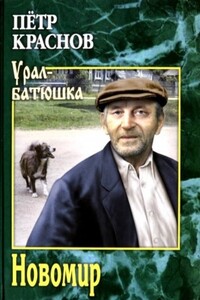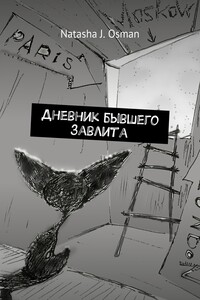36 Arguments for the Existence of God - [16]
“Yes, of course. I’m Cass. Cass Seltzer.”
“Nice to meet you, Cass.”
“Oh, we’ve already met,” he said, stopping himself before he could wail out his dismay: Don’t you remember? Don’t you remember how we laughed together like careless gods?
“Oh, sorry. I’m terrible with faces. Remind me of what you do?”
“Psychology of religion.”
“Psychology of religion?” Her thin upper lip curled slightly, not quite achieving a smile. “As a branch of abnormal psychology? Or are you one of those people who try to offer an evolutionary explanation for group madness?”
“Well, not exactly. What interests me more is the phenomenology of religion in all its varieties. What does it feel like from the inside? What sorts of terrors does it address, and what sorts of emotional growth does it both block and enhance? And how does the religious response manifest itself, even in ways that may not seem religious?”
Her lip curled a bit more, and it was a smile, and she lifted her chin so that her throat was exposed.
“It must be frustrating to deal with irrationality.”
“How can one be a psychologist and not deal with irrationality?”
“If I thought that were true, I’d never have gone near the field.”
“Well, I guess it’s a good thing for the field, then, that you don’t think it’s true.”
“But is it a good thing for the field that you do?”
Cass studied her face, which seemed both serious and friendly. He couldn’t tell from it, or from her serious and friendly voice, whether her question was ingenuous or sarcastic. Either way, he didn’t know how to respond. Lucinda held his gaze for several more ambiguous moments and then turned back to Held to resume their interrupted conversation.
He didn’t say more than ten words to Lucinda, nor she to him, for the rest of the semester.
Autumn and winter had gone by without his taking much notice. He must have shown up and taught his classes; he had his students’ class evaluations to prove it. And they were pretty good evaluations, too, considering he couldn’t remember a thing about the classes, neither preparing for them, nor giving them, nor reading the papers and grading the exams he had apparently assigned and administered. He had done it all sleepwalking with his eyes open, instructing the youth by day and writing, writing, writing by night.
Lucinda’s question to him, so direct and so undecipherable, had stunned him, and he needed to answer her. He needed to extract some answer out of the questions that had been roiling in him for the past two decades, the questions that he had lived out with Jonas Elijah Klapper and the questions he had lived out with Azarya. He had never cashed in that experience for hard insight.
Had he tried out any of his new thoughts on his students? He couldn’t remember, but a few of the more perceptive class evaluations had spoken of how it was cool to watch Professor Seltzer arguing with himself. “Sometimes it could get a little weird, like that dude at the end of Psycho. But in a good way.”
No doubt he had been distracted. It had been all he could do just to keep up with his classes and his fantasies. He never skimped on his fantasies, no matter how busy he was. He didn’t need to, since they blended with all he saw and thought and wrote and said. It was the love of the impossible that made everything possible. He was battered by the beating wings of unlimited desire, but they lifted him, too. Battered, emboldened, and exalted, and all at once.
Mona was convinced, despite his disclaimers, that he had stopped attending the Psychology Outside Speaker lectures because he couldn’t stand the circus they had become-“what with that Mandelbaum creature performing in all three rings at once, juggler, lion-tamer, tightrope walker, bareback horseback rider, lady on the flying trapeze…”
“That’s five rings, Mona.”
“And counting. She’s such an insufferable showoff. She’s destroyed the whole atmosphere of our department. Do you know, that pig Pavel doesn’t even go through the motions of asking for questions anymore? He just turns to her with an obscene leer and squeals, ‘Lucinda?’ and the whole place cracks up, including the star-by which I don’t mean the outside speaker. It’s revolting. The whole display is revolting. Everybody bows down to that creature, and only because she’s a bully.”
“Surely there’s more to it than that.”
“You mean the fucking Mandelbaum Equilibrium? Cass, you think anybody here understands it better than you and me? They don’t know the Mandelbaum Equilibrium from e = fucking mc>2. For all they know, it’s got as much to do with psychology as my grandmother’s blintzes. It’s not like mindfulness. Just because everybody can understand mindfulness, and can’t understand what the Mandelbaum Equilibrium is even about, they let her get away with carrying on as if the rest of us are just her movable props. Do you know, people have told me that they have to keep introducing themselves to her over and over again, because she’s just not mindful enough to remember who anyone here is? For some reason, she always seems to remember me, though. I’m one of the few whose names she actually knows, although for some reason she seems to think I’m Hungarian.”

О чем этот роман? Казалось бы, это двенадцать не связанных друг с другом рассказов. Или что-то их все же объединяет? Что нас всех объединяет? Нас, русских. Водка? Кровь? Любовь! Вот, что нас всех объединяет. Несмотря на все ужасы, которые происходили в прошлом и, несомненно, произойдут в будущем. И сквозь века и сквозь столетия, одна женщина, певица поет нам эту песню. Я чувствую любовь! Поет она. И значит, любовь есть. Ты чувствуешь любовь, читатель?

События, описанные в повестях «Новомир» и «Звезда моя, вечерница», происходят в сёлах Южного Урала (Оренбуржья) в конце перестройки и начале пресловутых «реформ». Главный персонаж повести «Новомир» — пенсионер, всю жизнь проработавший механизатором, доживающий свой век в полузаброшенной нынешней деревне, но сумевший, несмотря ни на что, сохранить в себе то человеческое, что напрочь утрачено так называемыми новыми русскими. Героиня повести «Звезда моя, вечерница» встречает наконец того единственного, кого не теряла надежды найти, — свою любовь, опору, соратника по жизни, и это во времена очередной русской смуты, обрушения всего, чем жили и на что так надеялись… Новая книга известного российского прозаика, лауреата премий имени И.А. Бунина, Александра Невского, Д.Н. Мамина-Сибиряка и многих других.

Две женщины — наша современница студентка и советская поэтесса, их судьбы пересекаются, скрещиваться и в них, как в зеркале отражается эпоха…

Жизнь в театре и после него — в заметках, притчах и стихах. С юмором и без оного, с лирикой и почти физикой, но без всякого сожаления!

От автора… В русской литературе уже были «Записки юного врача» и «Записки врача». Это – «Записки поюзанного врача», сумевшего пережить стадии карьеры «Ничего не знаю, ничего не умею» и «Все знаю, все умею» и дожившего-таки до стадии «Что-то знаю, что-то умею и что?»…

У Славика из пригородного лесхоза появляется щенок-найдёныш. Подросток всей душой отдаётся воспитанию Жульки, не подозревая, что в её жилах течёт кровь древнейших боевых псов. Беда, в которую попадает Славик, показывает, что Жулька унаследовала лучшие гены предков: рискуя жизнью, собака беззаветно бросается на защиту друга. Но будет ли Славик с прежней любовью относиться к своей спасительнице, видя, что после страшного боя Жулька стала инвалидом?